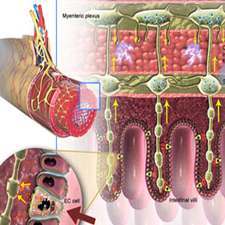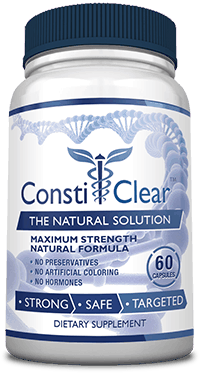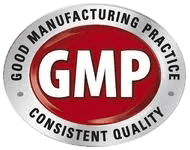Information on Constipation

If you've ever suffered from constipation, you know what an uncomfortable condition it can be. It can be painful and time consuming when you "gotta go" and just can't. In addition to being frustrating, if left untreated, serious constipation can lead to more serious medical complications, such as hemorrhoids or fecal impaction.
Approximately 2% of the United States population suffers from some form of constipation 1 . For others it is an on-going condition that they are constantly struggling with. However it affects you, constipation can put a considerable strain on your day-to-day quality of life.
What is Constipation?
 Constipation is classified by difficult and infrequent bowel movements. It can be an extremely frustrating and uncomfortable condition and does not affect everyone in the same manner. For some it just means not 'going' as often as they'd like, but for some it includes lots of straining and severe intestinal discomfort.
Constipation is classified by difficult and infrequent bowel movements. It can be an extremely frustrating and uncomfortable condition and does not affect everyone in the same manner. For some it just means not 'going' as often as they'd like, but for some it includes lots of straining and severe intestinal discomfort.
Both children and adults can be affected by constipation, but it is most common in women and the elderly population.
Over 6 million people are affected by constipation in the United States today. Most people have anywhere between 3 and 21 bowel movements a week. Some people have less, and some have more but the important thing is that their system continues to digest food and expel waste material. If you experience less than two bowel movements a week or find yourself frequently straining or experiencing feelings of incomplete evacuation, this could very likely be constipation. This could be the result of many different health and lifestyle factors, including diet, stress, depression, or lack of exercise.
There are many different ways to deal with constipation, and many different medical tests to determine the underlying cause of your constipation. The most important thing is to address it quickly and effectively, to prevent dangerous side-effects and maintain optimal health.
Constipation Symptoms
Symptoms vary from person to person and they may vary based on the severity of the episode. The signs of constipation can range from straining during bowel movements to pain and vomiting. Another symptom to be aware of is what is called incomplete evacuation, the feeling of not being able to fully 'empty' yourself, or satisfactorily complete a bowel movement.
If ignored, or left untreated, the symptoms of constipation can worsen. Having a bloated abdomen that is accompanied with stomach pains, or the need to vomit is a sign of serious constipation. Excessive straining during bowel movements can lead to the development of hemorrhoids or anal fissures, which are small tears or cuts in the lining of the rectum, causing painful bowel movements. In advanced cases, constipation can cause stool to harden in the colon and cause an obstruction, called a fecal impaction.
Constipation is a common yet complex condition with a wide variety of causes. It must be addressed correctly to prevent further complications.
What are the Causes and Characteristics of Constipation?

There are many factors that can lead to constipation, some as simple as an inactive lifestyle or improper diet. Other causes can include stress or depression, various medications, suppressing the urge to 'go', and hormone fluctuations2 .
Here are some of the most commonly found causes of constipation. They include:
- 1. Insufficient Dietary Fiber
- 2. Insufficient Daily Exercise
- 3. Pregnancy (Elevated Progesterone Levels)
- 4. Medical Conditions (Hypothyroidism, Parkinson's)
How is Constipation Diagnosed and Treated?
 Often constipation does not require a specific test to diagnose. However there are various medical procedures that can be used to assess the cause and severity of a constipation episode. These include blood tests to evaluate hormone levels that might be causing constipation, a barium enema, which can provide an X-ray picture highlighting the outline of the colon and any tumors or anomalies, and colonic transit studies where a patient swallows special markers that allow the physician to evaluate digestive transit time and pinpoint any obstructions.
Often constipation does not require a specific test to diagnose. However there are various medical procedures that can be used to assess the cause and severity of a constipation episode. These include blood tests to evaluate hormone levels that might be causing constipation, a barium enema, which can provide an X-ray picture highlighting the outline of the colon and any tumors or anomalies, and colonic transit studies where a patient swallows special markers that allow the physician to evaluate digestive transit time and pinpoint any obstructions.
To treat constipation, the first step is to ensure that dietary and lifestyle factors are in order. Eating a healthy diet that is high in dietary fiber, drinking adequate amounts of fluids and adding light exercise to your daily routine will often be enough to relieve minor constipation. If the condition is more advanced, laxative therapy may be the answer. Effective constipation relief is not only about quickly fixing the condition but also finding an effective long-term solution3 . For this reason you should always be sure to pick a solution that is safe and natural, and will promote continued intestinal health, not just a quick fix.
Your doctor may decide to refer you to a gastroenterologist for further assessment and treatment if a diagnosis is unclear, you experience severe or sudden onset constipation, or if the treatment is not helping to control your symptoms.







 ConstiClear™'s formulation of effective ingredients and strong name recognition have brought praise from both customers and health professionals alike. To learn more about the research and data behind ConstiClear™ , please visit our "
ConstiClear™'s formulation of effective ingredients and strong name recognition have brought praise from both customers and health professionals alike. To learn more about the research and data behind ConstiClear™ , please visit our "




